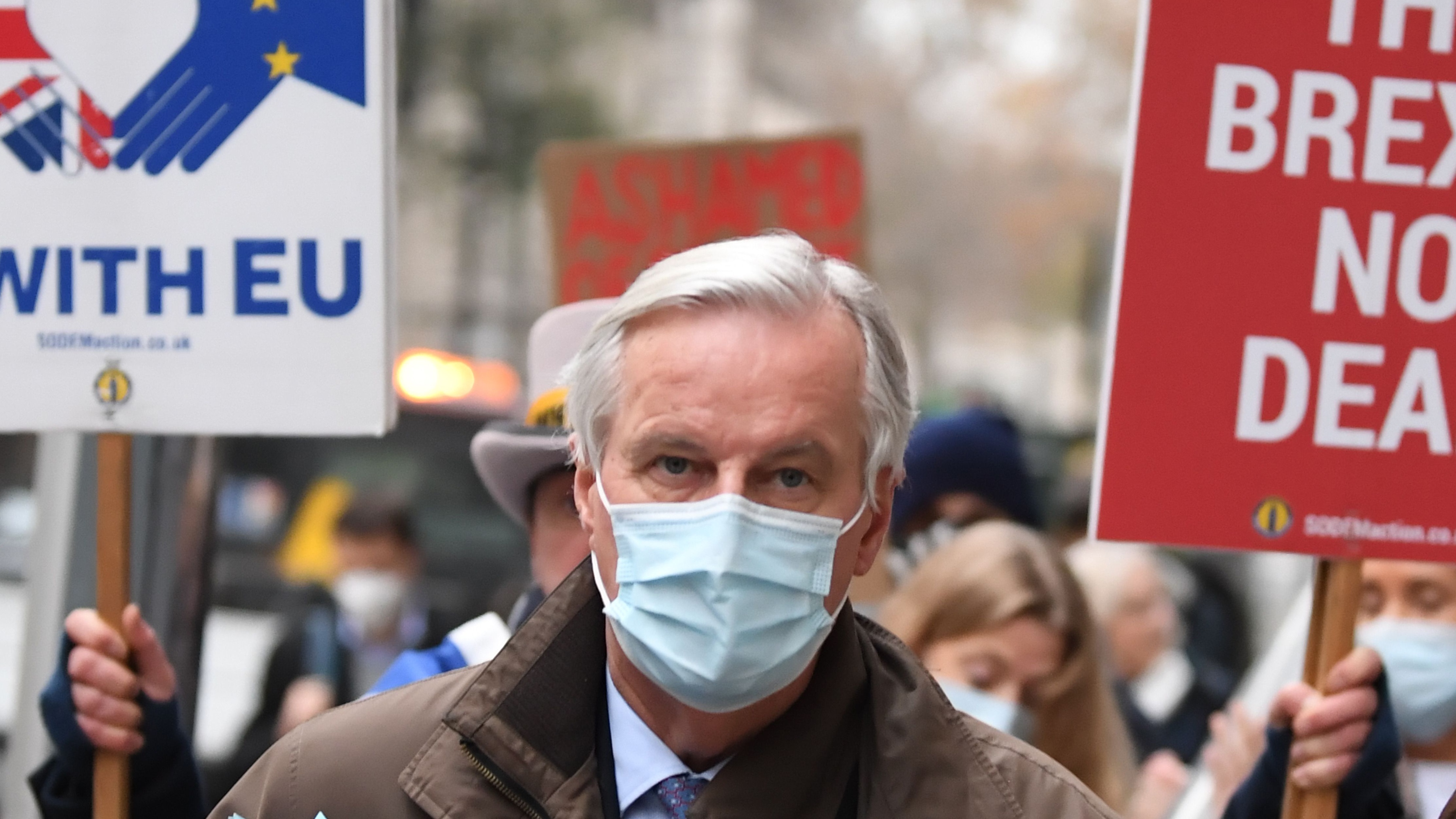Michel Barnier facing EU scrutiny over Brexit deal compromises
Emmanuel Macron leading chorus of ‘nervous’ European leaders

A free daily email with the biggest news stories of the day – and the best features from TheWeek.com
You are now subscribed
Your newsletter sign-up was successful
Michel Barnier is being quizzed by EU leaders over concerns that the negotiator is planning to concede too much to the UK in the final days of Brexit negotiations.
French President Emmanuel Macron yesterday said that his country “will not accept an agreement that does not respect our long-term interests”, as a French diplomat told the Financial Times that the EU27 are becoming “nervous” over the terms of the potential trade deal.
EU leaders were pushing Barnier “to include them before agreeing to anything”, the unnamed diplomat said, as negotiators continued to wrangle over fishing rights and competition conditions for business.
The Week
Escape your echo chamber. Get the facts behind the news, plus analysis from multiple perspectives.

Sign up for The Week's Free Newsletters
From our morning news briefing to a weekly Good News Newsletter, get the best of The Week delivered directly to your inbox.
From our morning news briefing to a weekly Good News Newsletter, get the best of The Week delivered directly to your inbox.
Another EU diplomat told The Guardian that while the bloc has faith in Barnier’s abilities as a negotiator, anxiety was sparked last week when he told ambassadors of his “flexibility” over some aspects of customs and border controls.
Barnier is currently in London but is briefing Brussels via video link this morning. He “will be asked to relay the message to the Commission that the member states would like to have prior scrutiny of a possible agreement before closing it”, the insider said, adding: “Being in the dark makes people nervous.”
Today’s meeting was called after the EU was urged by key member states to “hold firm to their red lines in the endgame of trade negotiations”, The Telegraph reports.
Another unnamed EU diplomat told the paper that the European Commission received a “serious warning” from Macron that concessions on key negotiating lines “risked dividing member states”.
A free daily email with the biggest news stories of the day – and the best features from TheWeek.com
Speaking at a press conference in Paris yesterday alongside Belgian Prime Minister Alexander De Croo, Macron said that their two countries were “among the most impacted” by Brexit.
The French leader added: “We will be particularly vigilant about the conditions of fair competition, today and for the long term, and the question of fish.”
Joe Evans is the world news editor at TheWeek.co.uk. He joined the team in 2019 and held roles including deputy news editor and acting news editor before moving into his current position in early 2021. He is a regular panellist on The Week Unwrapped podcast, discussing politics and foreign affairs.
Before joining The Week, he worked as a freelance journalist covering the UK and Ireland for German newspapers and magazines. A series of features on Brexit and the Irish border got him nominated for the Hostwriter Prize in 2019. Prior to settling down in London, he lived and worked in Cambodia, where he ran communications for a non-governmental organisation and worked as a journalist covering Southeast Asia. He has a master’s degree in journalism from City, University of London, and before that studied English Literature at the University of Manchester.
-
 5 blacked out cartoons about the Epstein file redactions
5 blacked out cartoons about the Epstein file redactionsCartoons Artists take on hidden identities, a censored presidential seal, and more
-
 How Democrats are turning DOJ lemons into partisan lemonade
How Democrats are turning DOJ lemons into partisan lemonadeTODAY’S BIG QUESTION As the Trump administration continues to try — and fail — at indicting its political enemies, Democratic lawmakers have begun seizing the moment for themselves
-
 ICE’s new targets post-Minnesota retreat
ICE’s new targets post-Minnesota retreatIn the Spotlight Several cities are reportedly on ICE’s list for immigration crackdowns
-
 Epstein files topple law CEO, roil UK government
Epstein files topple law CEO, roil UK governmentSpeed Read Peter Mandelson, Britain’s former ambassador to the US, is caught up in the scandal
-
 Iran and US prepare to meet after skirmishes
Iran and US prepare to meet after skirmishesSpeed Read The incident comes amid heightened tensions in the Middle East
-
 Grok in the crosshairs as EU launches deepfake porn probe
Grok in the crosshairs as EU launches deepfake porn probeIN THE SPOTLIGHT The European Union has officially begun investigating Elon Musk’s proprietary AI, as regulators zero in on Grok’s porn problem and its impact continent-wide
-
 Israel retrieves final hostage’s body from Gaza
Israel retrieves final hostage’s body from GazaSpeed Read The 24-year-old police officer was killed during the initial Hamas attack
-
 China’s Xi targets top general in growing purge
China’s Xi targets top general in growing purgeSpeed Read Zhang Youxia is being investigated over ‘grave violations’ of the law
-
 Panama and Canada are negotiating over a crucial copper mine
Panama and Canada are negotiating over a crucial copper mineIn the Spotlight Panama is set to make a final decision on the mine this summer
-
 Europe moves troops to Greenland as Trump fixates
Europe moves troops to Greenland as Trump fixatesSpeed Read Foreign ministers of Greenland and Denmark met at the White House yesterday
-
 Why Greenland’s natural resources are nearly impossible to mine
Why Greenland’s natural resources are nearly impossible to mineThe Explainer The country’s natural landscape makes the task extremely difficult